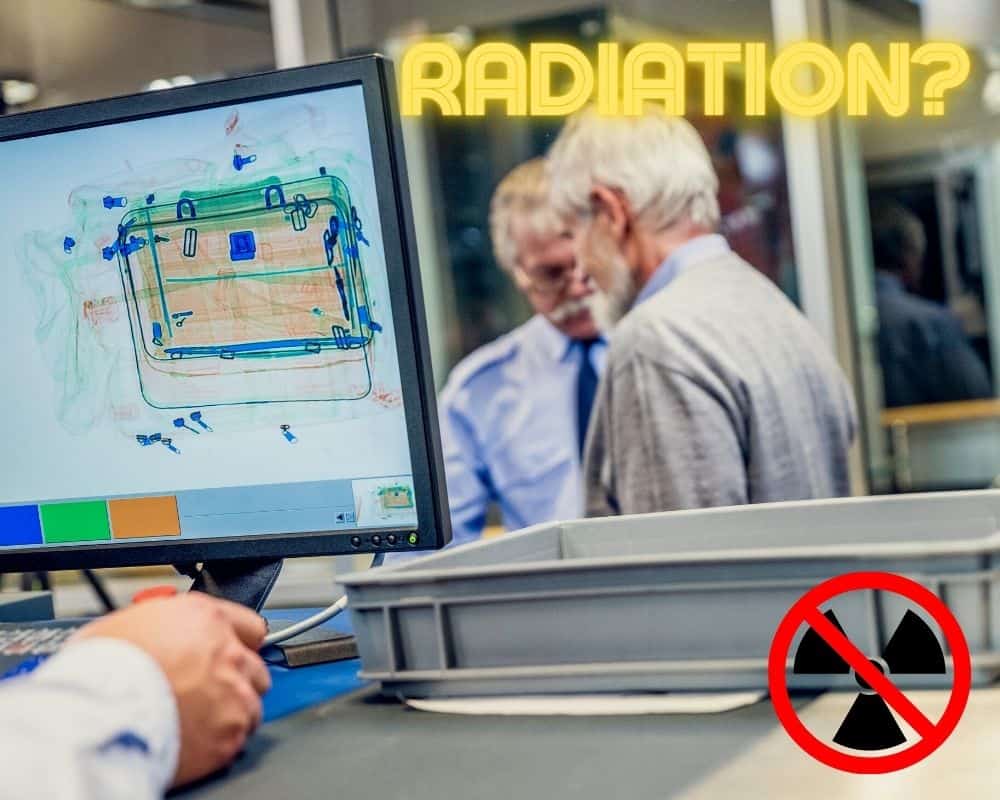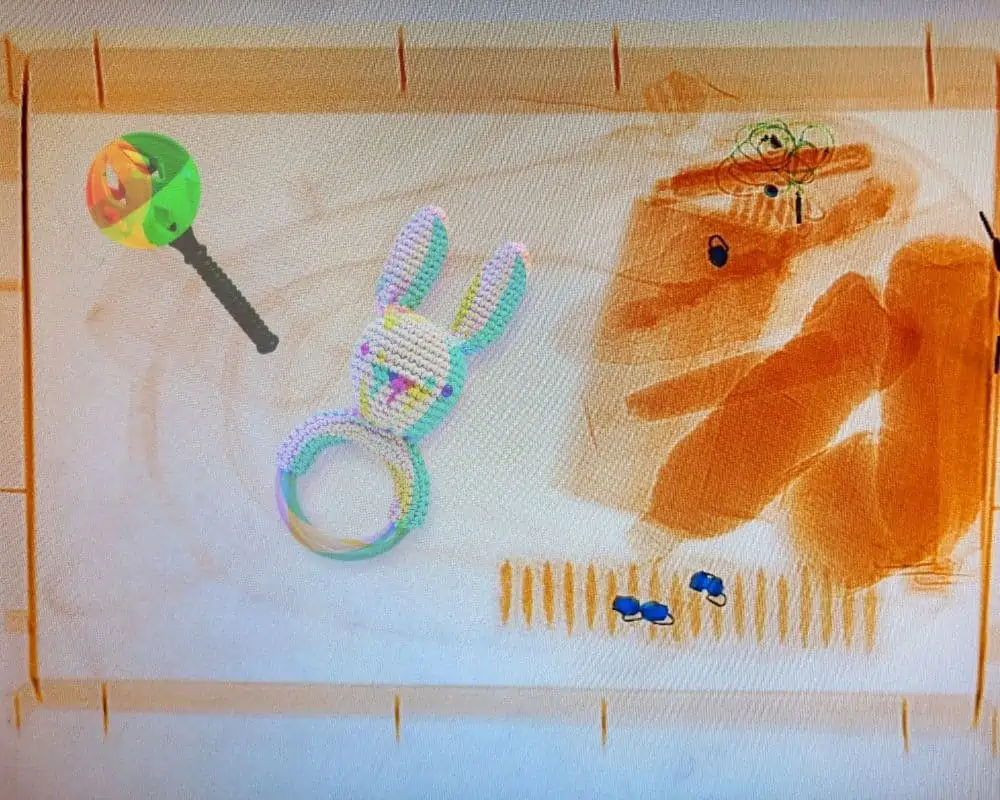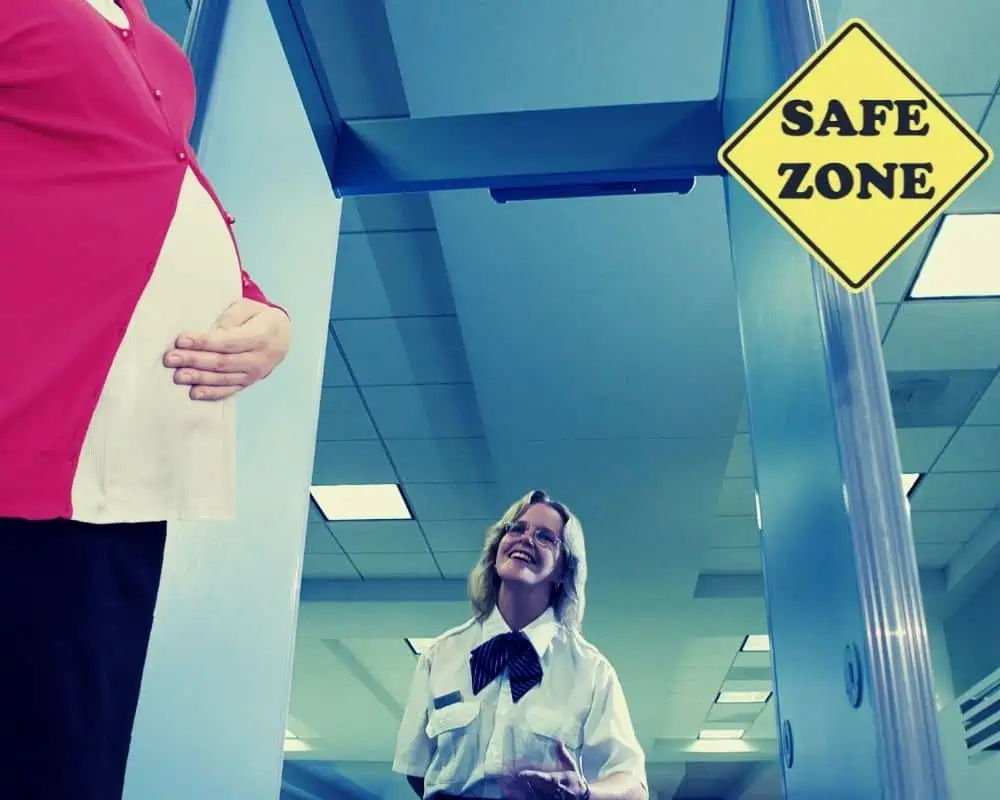Pregnancy can be a time of excitement and worry for expecting mothers. When you’re pregnant, it’s important to be aware of the potential risks and dangers posed to both you and your unborn child. One issue that often arises for pregnant women is whether or not to go through a metal detector.
In this blog post, we will discuss the technology used in metal detectors and airport scanners, as well as the risks associated with each type. We will also offer some advice for pregnant women who are concerned about being around a metal detector.
Common Concerns About Metal Detectors and Pregnancy

Pregnancy should be a time of joy, excitement, and even a little harmless nervousness. It’s a time when your body is going through incredible changes and you are preparing to bring a new life into the world.
However, as any pregnant woman knows, there are also a number of potential concerns that come with pregnancy. One such concern is whether or not it is safe to go through a metal detector or be scanned by an airport scanner.
Or maybe you are an avid detectorist and you live for the excitement that metal detecting brings. No matter what your reason for wanting to know more about metal detectors and pregnancy, we have the answers for you.
Besides the question of the general safety of use, many women are concerned about the levels of radiation that they are exposed to when going through a metal detector or being scanned by an airport scanner.
Another question that arises often is the effect that the scanner or metal detector has on them during different trimesters.
Is my baby at more risk in the first trimester, can metal detectors cause a miscarriage, what about the radiation from hand wands? These are just some of the questions that we will answer in hopes to give you some peace of mind.
So, without further ado, let’s jump in and get to the bottom of this!
Do Metal Detectors Emit Radiation?
The short answer is yes, metal detectors emit radiation.
However, the amount of radiation that they emit is relatively low and is not considered to be a health hazard. Metal detectors work by sending out a signal that interacts with the metal object being detected.
This interaction creates an electromagnetic field, which in turn causes a change in the electric current running through the metal detector. This change in current is what is detected by the machine and it is used to identify the presence of metal.

While metal detectors do emit radiation, it is important to note that most detectors do not emit ionized radiation. Ionized radiation is a type of radiation that can be harmful to the human body (in large amounts!) and often used for a device called a backscatter unit.
Nonionized radiation, on the other hand, is radiation that is not considered to be harmful.
A backscatter unit is a device that was used in airport scanners to detect hidden weapons or explosives.
It worked by shooting a low-level X-ray at the person being scanned. This X-ray is then reflected off of the person’s body and captured by the backscatter unit. The image that is produced shows any objects on the person’s body that may be hidden under their clothes.

What’s important to know is that the amount of ionized radiation emitted by a backscatter unit is so low that it is not considered to be a health risk, according to the manufacturer Rapiscan. In fact, the EPA (Environmental Protection Agency) states the following,
“Generally, the amount of radiation received from a backscatter machine equals the amount of cosmic radiation received during two minutes of flight, and the risk of health effects is very, very low.”
Despite the effectiveness of the backscatter x-ray machine, they were removed from airports in 2013.
Unfortunately, the backscatter unit could not be altered to align with privacy standards accepted by travelers and officials.
The images created by the backscatter machine would capture naked images of the person being scanned. The software was unable to be updated to prevent this from continuing.
Instead, the TSA replaced this machine with the less invasive AIT (Advanced Imagine Technology) machine.
AIT uses millimeter wave imaging technology to detect metallic and non-metallic threats. Then it highlights a generic human outline at the location of any identified object.
More About Ionized and Nonionized Radiation
So, what is ionized radiation and why should pregnant women be aware of it? Ionized radiation is a type of radiation that is created when an atom loses or gains electrons.
This type of radiation is often used in medical treatments and X-rays. It can be harmful to the human body if exposure is high enough and can cause things like cancer and birth defects.
However, as we previously stated, the amount of ionized radiation used by airport scanners and other metal detector devices is extremely low and not dangerous to you or your baby.

Another important note on this type of technology, while it may be used to X-ray passengers, in most cases it is reserved for luggage and carry-on equipment.
Nonionized radiation, on the other hand, is radiation that is not considered to be harmful, especially compared to larger ionized doses. Nonionized radiation has enough energy to move atoms around, but not enough to remove their electrons.
This type of radiation is often used in things like cellphones, microwaves, and TV.
So if you are comfortable with using your cellphone or watching some late-night TV, getting through airport security, or using your favorite metal detector shouldn’t worry you.
Is Using a Metal Detector Every Day While Pregnant Safe?

Now that we know a little more about the types of radiation emitted by metal detectors, you may be wondering if it is safe to use one every day while you are pregnant.
The answer to this question is yes, it is perfectly safe to use a metal detector while you are pregnant.
In fact, according to the Health Physics Society, the nonionized radiation from most metal detectors are not harmful to you or your baby. And ionized radiation from metal detectors is so low that it can’t even penetrate the surface of your skin. So, no damage will come to your organs or your unborn child.
Can Airport Scanners See My Baby?
Another question that pops up often is if airport scanners can see your baby? The answer to this question is no, airport scanners cannot see your baby.

The images produced by an airport scanner show any objects on the person’s body that may be hidden under their clothes. However, these images are not detailed enough to see a person’s internal organs or a developing fetus.
So, if you are pregnant and have any concerns about going through an airport scanner, there is no need to worry. Your baby will not be affected by the low levels of radiation emitted by these devices.
Are Metal Detectors Safe in Early Pregnancy?
You may be wondering if you and your baby are at more risk from metal detectors during the first trimester. Again, the answer is no, you are not at more risk during the first trimester.
As we previously stated, airport scanners cannot see your developing fetus. So, there is no need to worry about using a metal detector or going through one, no matter the stage of pregnancy you are in.
And according to Diane Rai, editor of Babycenter India, the amount of radiation emitted by ionized metal detectors like a backscatter is so low that you could walk through 200 of these devices at once and the level of radiation wouldn’t even affect your baby.
Are Magnetometers Safe During Pregnancy?

Magnetometers are an older type of metal detector that uses a magnetic field to detect any metallic objects on a person’s body. These devices are still used at security checkpoints and can be found in places like airports, government buildings, and event venues.
They are great for detecting metal objects but do not work as well as newer technology that is more equipped to find non-metallic objects.
Like other types of metal detectors, magnetometers are low-level radiation emitters and are non-impactive to you and your fetus, according to the CDC. So, if you come across one of these devices, there is no need to worry.
Are Hand-held Metal Detectors Safe While Pregnant?

Hand-held metal detectors or wands are devices that are often used at security checkpoints and public events. These devices emit a low level of radiation, which is not harmful to you or your baby. In fact, their use would be on the same level as passing through radio waves or walking under power lines.
Is Walk Through Metal Detectors Safe When Pregnant?
Walkthrough metal detectors are devices that you pass through in order to be scanned for any metallic objects on your body. Not so many zippers and buttons, but small knives and lighters are the targets.
You will often see these at courthouses, federal buildings, airports, and possible schools.
Like the hand-held metal detectors, these machines are safe from exposing you or your baby to any impactful levels of radiation.
What Are Your Alternative Options?

If you have to go through a security checkpoint and you really don’t feel comfortable with any type of metal detector being scanned around your body, you always have the option to ask for a pat-down instead.
A pat-down is when a security officer uses their hands to physically check your body for any hidden objects.
You can also request to have any hand-held items, like your purse or carry-on bag, scanned separately with a handheld device. This will ensure that you don’t have to go through the metal detector with these items.
Final Thoughts
As an expecting mother, you are bound to have some concerns about going through a metal detector or being scanned by one. However, you can rest assured knowing that these devices are safe for you and your baby.
So, next time you have to go through a security checkpoint, get an X-Ray, or even turn on the microwave, you won’t have to think twice about your safety.





